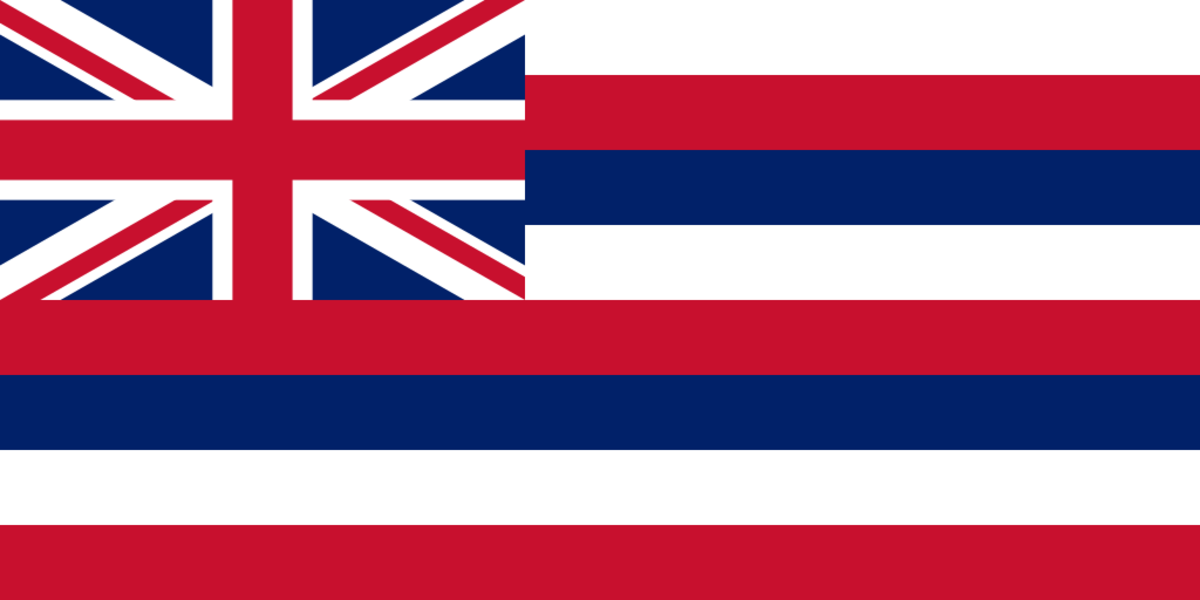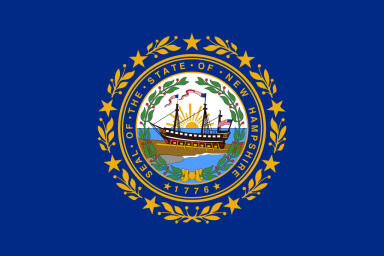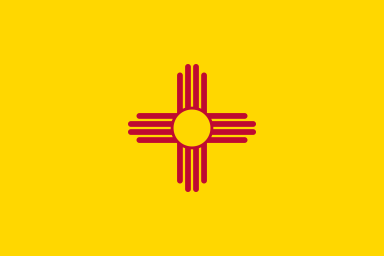Hawaii Workers’ Compensation Laws

In 2021, a total of 11,000 non-fatal workplace injuries and illnesses were reported by private industry employers in the state of Hawaii. According to the Bureau of Labor Statistics, this translated to an incidence rate of 3.3 cases per 100 full-time workers—much higher than the national rate of 2.7.
Meanwhile, figures for workplace injuries and illnesses in the public sector were slightly better, with only 2,100 cases reported, translating to a rate of 3.2 cases per 100 full-time workers. This rate is lower than the national average rate of 4.5.
Nonetheless, a total of 15 fatal workplace injuries were reported in Hawaii in the same year—one case shy of the previous year’s record of 16. Out of the 15, nearly 87% occurred in the private industry sector.
On the bright side, if an employee gets hurt or sick at work nowadays, they can file a workers' compensation claim. Workers' compensation is insurance that pays for medical expenses and lost wages for those who get hurt or sick because of their job responsibilities.
With that in mind, this article aims to tell you everything you have to know about workers' compensation insurance in Hawaii, from who needs it to what to do if you're injured on the job. It also lists resources that may help if your employer is being difficult.
Hawaii Workers’ Compensation Insurance Requirements
In 1915, Hawaii passed a law called the Workers' Compensation Act. This law ensures injured workers get the money and medical care they need, no matter who or what caused their injury. The law also protects employers by preventing injured workers from suing them in court for work-related injuries or illnesses.
Hawaii’s General Rules on Workers’ Compensation
Under the law, all Hawaii employers with at least one employee must provide workers' compensation benefits to all their employees, regardless of their employment status (full-time, part-time, temporary, or permanent).
Employers must post a printed statement in a visible and accessible workplace area. This poster details everything an employee should know about the workers’ compensation law, such as their rights and the claims process.
Most of the time, employers choose to purchase insurance from carriers authorized to make workers’ comp-related transactions in Hawaii. They may call the Department of Commerce and Consumer Affairs for a list of workers’ compensation insurance carriers. They also have the option to obtain coverage from their liability insurance.
That said, employers can insure themselves and pay the statutory benefits directly to their injured or ill employees. Should they choose this option, they must show proof of financial solvency and ability to pay the benefits by completing the Application for WC Self-Insurance Authorization or WC-21 form. This must be approved by the Director of Labor and Industrial Relations.
Employers should shoulder all related contributions. In fact, they are legally barred from compelling their employees to shell out money or put aside part of their wages toward the workers’ comp coverage.
Exemptions to Hawaii’s Workers’ Compensation Law
In some cases, workers' compensation benefits in Hawaii are not required. These exemptions include:
Sole proprietors.
Business partners.
All 50% stockholders.
Certain 25% stockholders.
University or college students who work in exchange for non-monetary compensation, such as tuition and room and board.
Unpaid volunteers at schools, places of worship, charity organizations, and nonprofit groups.
Authorized religious professionals, such as ministers, priests, and rabbis.
Domestic workers who earn less than $225 per quarter.
Real estate brokers and salespeople who work solely on commission.
Members of LLCs not registered as businesses and who own 50% or more of the company.
Note that this is not an exhaustive list of all exemptions to Hawaii's workers' compensation law. As such, employers and employees may consult an attorney to determine whether a specific situation is exempt from coverage.
What to Do if an Employer Does Not Provide Workers’ Compensation Coverage
If an employer in Hawaii does not have workers’ compensation benefits for their employees, the matter should be reported to the Investigation Section in Honolulu. This is under the Disability Compensation Division of the state’s Department of Labor and Industrial Relations. Employees can call (808) 586-9151 or visit the office at Room 209, 830 Punchbowl Street in Honolulu. They also have the option to mail their concern to PO Box 3769 Honolulu, HI 96812-3769.
Employers who do not comply with the workers’ compensation law may face a fine of up to $100 per employee each day if they continue to operate without workers’ compensation coverage. Apart from being set back financially by penalties, they may face lawsuits initiated by injured employees who want to recover damages.
Hawaii Workers’ Compensation Benefits
Medical Benefits
Workers' compensation in Hawaii covers all medical expenses related to a sick or injured employee's treatment, including surgeries, hospital stays, and supplies. Employees can choose their own doctor, and the cost of prescription drugs, X-rays, and physical therapy is also covered. Employers must reimburse employees for reasonable transportation expenses related to medical treatment.
Disability Benefits
Temporary Partial Disability
If a sick or injured employee can return to work but has limited duties or hours, they may be eligible for temporary partial disability benefits. These will be given until the employee makes a full recovery. The benefit amount is two-thirds of the difference between the employee's current income and their average weekly salary before the injury.
Temporary Total Disability
Should the injury result in temporary total disability, wage loss benefits are guaranteed to the employee as long as the doctor who treated their injury or illness provides a certification of disability.
TTD benefits are generally calculated as two-thirds of the injured employee’s average weekly salary before the incident occurred. The minimum and maximum rates are based on a percentage of the average wages across the state, but like most workers’ compensation benefits, TTD benefits are not taxable.
When it comes to scars due to lacerations or required surgery, the employee can ask for disfigurement payments, which cover both bodily deformities and discolorations.
Permanent Partial Disability
If one of the employee’s body parts has become unusable, they are entitled to permanent partial disability benefits. This is calculated by multiplying the maximum TTD rate by a certain number of weeks, depending on the extent of the impairment (usually expressed as a percentage).
Permanent Total Disability
Meanwhile, if the injury prevents the employee from returning to work or finding new employment, they should receive permanent total disability benefits. They are also entitled to career counseling, training, and job placement assistance under their vocational rehabilitation benefits.
If the employee’s work-related injury or illness leads to their death, their employer must provide the surviving spouse and dependent children with financial compensation under the law.
How to File a Workers’ Comp Claim in Hawaii
If an employee gets hurt at work or gets sick because of their job, they should tell their supervisor or boss right away. Within three days of being told about the injury or illness, the employer must give the employee a copy of the Highlights of the Hawaii Workers' Compensation Law. The employer must also file an Employer's Report of Industrial Injury (WC-1) with the DCD within seven working days of the injury or illness being reported.
When Is the Deadline for Workers’ Compensation Claims in Hawaii?
Hawaii workers' compensation claims must be filed within five years of the accident or two years of when the injury's effects or symptoms became apparent, whichever is sooner. However, there is no time limit for claims involving injuries caused by compressed air, occupational contact with certain radioactive substances, or exposure to carcinogens like arsenic, chromium, lead, and fluorine.
A Step-By-Step Guide on Filing a Workers’ Compensation Claim in Hawaii
In Hawaii, sick or injured employees must follow these steps to comply with the state’s workers' compensation law:
1. Seek Appropriate Medical Attention
The injured employee should seek proper medical care and treatment. They should also inform the doctor that this is a work-related injury and that relevant medical documents will be needed afterward.
2. Report the Injury
As soon as the employee receives an official diagnosis, they should tell their supervisor or employer. This may be done either in writing (by mail) or verbally (in person or over the phone). They should note the contact details of the workers’ compensation insurer as well, if applicable.
Moreover, the employee should update their supervisor or employer of their expected return-to-work date. Failure to take this step may result in the worker being dismissed for job abandonment.
3. Complete the Needed Paperwork
Once cleared to return to work, the employee should complete all necessary paperwork, such as their leave application. They should also notify the responsible Workers’ Compensation branch of their status. Once the employer has successfully filed the workers’ compensation claim, the employee will be furnished a copy of the WC-1 form or contacted by the DCD of the Department of Labor.
To know the status of a workers’ compensation claim, the employee can contact the nearest DCD office. The contact numbers for the Division’s Facilitator’s Unit are as follows:
Oahu - (808) 586-9161
Hilo - (808) 974-6464
Kauai - (808) 322-4808
Kona - (808) 322-4808
Maui - (808) 984-2702
Responsibilities of Hawaii Employers in Workers’ Compensation Cases
Meanwhile, here are the duties of the supervisor or employer in case an employee reports an injury or illness at work:
1. Ensure the Employee Receives Medical Attention
Before anything else, the employer should make sure the employee is taken to a hospital or urgent care center where they can be properly assessed and treated by healthcare professionals.
2. Fill Out the Proper Form/s
The employer should then complete the proper form (WC-1) and file it accordingly. The in-charge individual should see to it that everything has been filled out and signed.
3. Notify the Authorities
The employer is responsible for informing the DCD or the nearest Workers’ Compensation branch about the incident.
4. Keep Communication Lines Open
The employer must keep in touch with the injured employee to know their condition and provide the necessary updates to the authorities. Once the employee returns to work, the employer should ensure all paperwork, such as leave applications, is accomplished.
What Should One Do if Their Workers’ Compensation Claim in Hawaii Has Been Denied?
If a workers’ comp claim is denied, the employer or the injured employee may request a hearing with the DCD by filing an Application for Hearing or WC-77 form. The DCD will send a response via mail.
Once the hearing is conducted, the hearing officer will give their verdict within 60 days. If either party wants to dispute the decision, they may file a notice of appeal with the DLIR Appeals Board or at the nearest DCD office no later than 20 calendar days from the date stamped or seen on the decision.
The same process is to be followed in case any issue remains unresolved between the two parties, such as when the claims adjuster denies the treatment plan or stops paying.
What to Do if an Employer Refuses to File a Workers’ Compensation Claim
Employers must provide strong evidence that they should not be responsible for medical expenses or other related costs in cases where the law presumes that they are. This presumption is strictly observed in the state, as highlighted in the 2021 case of Skahan v. Stutts Construction Co., Inc.
In this case, the plaintiff (Skahan) injured his back while working for the defendant (Stutts) on November 30, 2004, and the defendant accepted workers’ compensation liability. On June 12, 2012, Skahan, who was then no longer employed by Stutts, experienced mid and low back pain while swimming in the ocean.
He then filed additional workers’ compensation claims against Stutts. The issue was whether or not the plaintiff’s 2012 back pain was related to the 2004 injury and merited compensation from the defendant.
Because Stutts’ expert did not completely explain why the 2012 back pain could not be caused by or related to the 2004 injury, the Supreme Court held that the expert only provided a “generalized” testimony, which was not enough to meet the “substantial evidence” required in rebutting the presumption of coverage.
In light of this case, any injured worker in Hawaii whose employer refuses to file workers' compensation claims should contact the DCD immediately. The employee or their lawyer (if they hire one) can also file a WC-5 form, also known as an Employee's Claim for Workers' Compensation Benefits, with the DCD or nearest DLIR District Office. It is best to include a physician's report (WC-2) and any disability certificate. The employer should also be given a copy of the WC-2 form.
Legal Resources for Injured Workers in Hawaii
Ultimately, if you are a victim of poor or unsafe working conditions in Hawaii, several legal resources are available to help you. These organizations can provide information about your rights, help you file a workers' compensation claim, and represent you in legal proceedings that may arise from your injury.
Hawaii’s Disability Compensation Division
The DCD is responsible for administrating the Workers’ Compensation, Temporary Disability Insurance, and Prepaid Health Care laws in Hawaii. It establishes the guidelines on workers’ compensation and creates and updates relevant forms. Its website provides detailed instructions for employees, employers, and insurance carriers regarding workers’ compensation. The DCD also hears and decides on workers’ comp cases. Its contact number is (808) 586-9151.
Hawaii Disability Rights Center
The Disability Rights Center is Hawaii’s designated protection and advocacy agency for those with disabilities. It was established to protect and promote the rights of individuals with various afflictions. These include individuals who were terminated from their employment following a work-related injury or those who experienced other forms of employment discrimination. The Center can be reached at (808) 949-2922.
Work Now Hawaii
Work Now Hawaii is a nonprofit organization that also helps people with disabilities find employment. They can help those who, due to a work-related injury or illness, have become unable to return to their previous employment find a new job that is inclusive and better fits their capabilities. Their contact number is (808) 202-2310.
Expertise.com StaffAuthor
Step into the world of Expertise.com, your go-to hub for credible insights. We don't take accuracy lightly around here. Our squad of expert reviewers, each a maestro in their field, has given the green light to every single article you'll find. From rigorous fact-checking to meticulous evaluations of service providers, we've got it all covered. So feel free to dive in and explore. The information you'll uncover has been stamped with the seal of approval by our top-notch experts.




